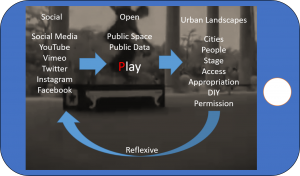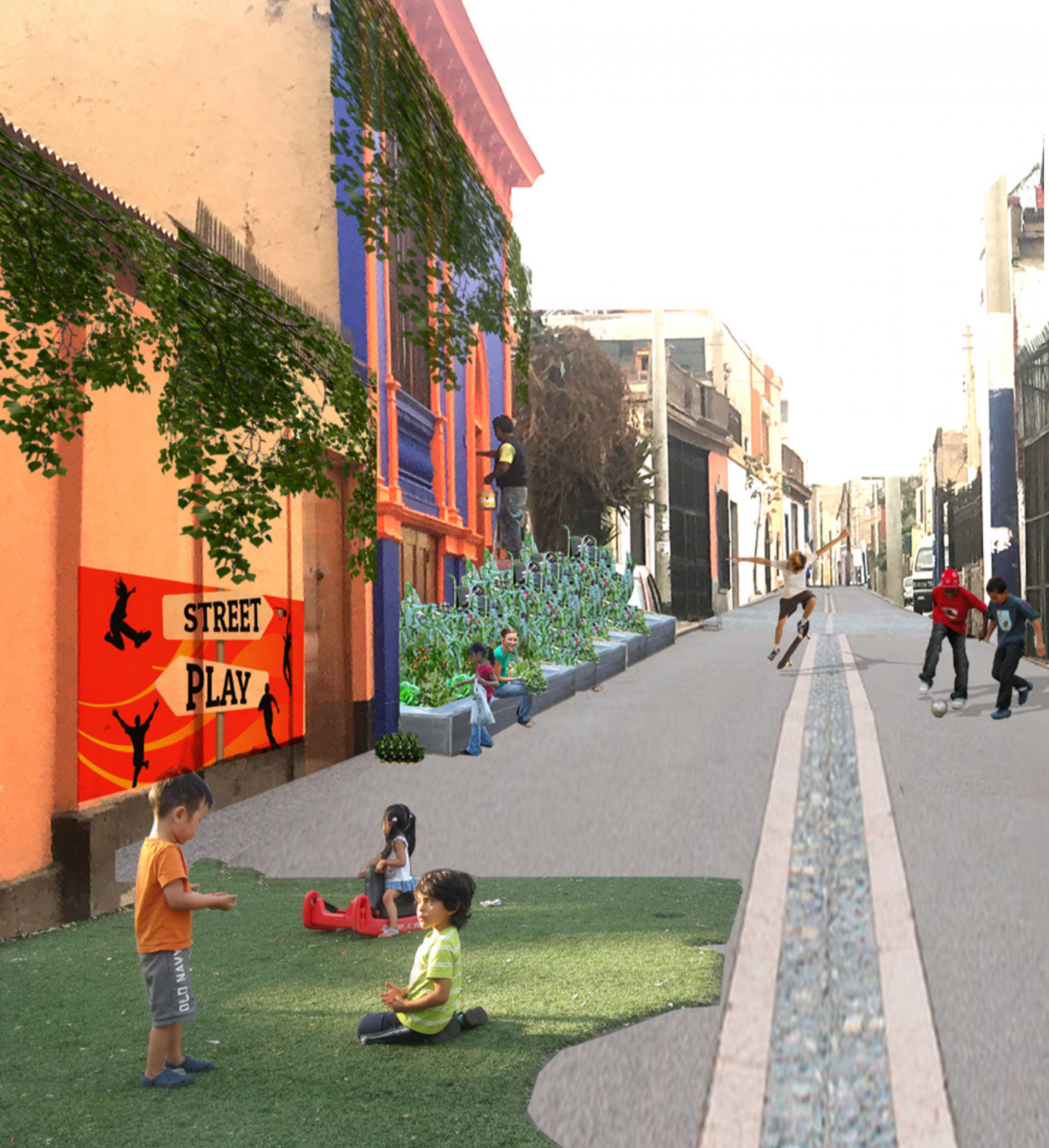L A 490i VIP: “City Leisure and Play”
Vertically Integrated Project Fall 2019 + Spring 2020
Instructor: Ben Shirtcliff, Ph.D., Assistant Professor Landscape Architecture: bens@iastate.edu
Office Hours: By Appt. M/F 8:30 to 11:30 476 Design.
Team Meeting: Tuesday 8:00 – 9:00 Room 76 Design

Goals: This project-based course will form research teams that innovates urban design to support prosocial behaviors; or, we’re going to see what makes cities fun!
Research Addresses: The team will research public spaces that have been shared on social media, like YouTube, for examples of human performances and prosocial behaviors. Sub-teams will find, code, map, and evaluate the places for urban design factors affording prosocial behavior.
Sub-teams: Searchers, Coders, Mappers, and Evaluators




Methods/Technology: Big data: search and scrape, Post-occupancy evaluation, Video Coding, Ethnography, and Geographic Information Systems (GIS) Mapping
Majors and Areas of Interest: Landscape Architecture, Community and Regional Planning, Architecture,
Art and Visual Culture, Industrial Design, Event Management, Computer Science, Anthropology, Real Estate, Marketing, Psychology. All majors welcome
Related Grand Challenges: Enabling Healthy Lives; Building sustainable human and natural ecosystems

Are you a VIP?: Undergraduates who join a Vertically-Integrated Project (VIP) team earn academic credit for their participation in design efforts that assist faculty with R&D issues in their areas of expertise. The teams are: multidisciplinary – drawing students from all disciplines on campus; vertically integrated – maintaining a mix of sophomores through graduate students each semester; large-scale – 8 to 16 students per team; and long-term – each student may participate for up to three years. The continuity, technical depth, and disciplinary breadth of these teams provide:
The time necessary for students to learn and practice many different professional skills, make substantial technical contributions, and experience many different roles on a large multidisciplinary team.
A compelling context – the research efforts of the faculty and graduate students – that ensures they are engaged because they benefit from the efforts of the undergraduates. It enables the undergraduates to understand complex issues in their chosen field.
The mentoring necessary for students to learn about, contribute to, and lead the parts of the project on which they are focused. The mentoring crosses all boundaries, enabling faculty, graduate students, and sophomores through seniors to collaborate successfully.

